OLIVE OIL BASICS
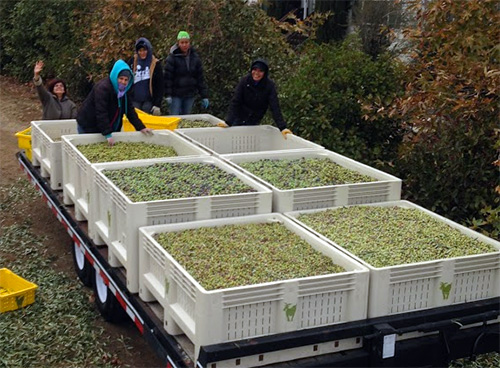
What is Extra Virgin Olive Oil (EVOO)?
Olive oil is pressed from olives, the fruit of the olive tree. Extra virgin olive oil is just the perfect, true oil from the olive, pressed without use of chemicals, refining or added heat. Fresh and without defects, extra virgin is the highest grade of olive oil.
“Extra Virgin” also denotes that the oil is free of defects of flavor or odor. This cannot be detected by laboratory tests, and is evaluated by a trained sensory panel.
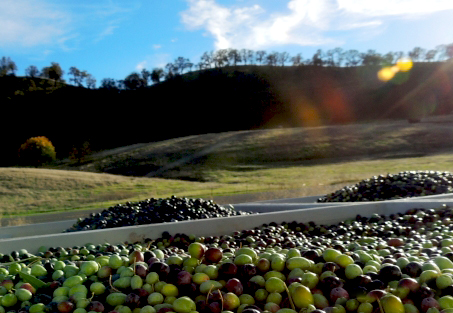
Grumpy Goats Farm EVOO
Grumpy Goats Farm produces superior extra virgin olive oil which has garnered support and recognition from customers, olive oil competition judges, industry buyers and writers and others. To maintain that high quality of oil, we start with careful attention to our olive trees. Our irrigation, fertilization and weed and pest management programs are geared to keeping our trees in good health, and the olives on those trees at peak production. We specialize in highly robust oils, and work hard to get the right combination of water, fertilizer, and harvest schedules to yield an optimum balance of fruit, bitterness and pungency in our oil.
We are also a certified organic farm, which means that our olives are never subjected to non-organic fertilizers, pest controls, or weed controls.

Olive Oil Every Day
Olive oil is a great ingredient for everyday cooking. Stocking your larder with a high-quality, versatile, foundational ingredient like good olive oil means you can prepare super meals without having to make a trip to the market. Olive oil complements and enhances the flavor of a recipe. It is a healthy ingredient.
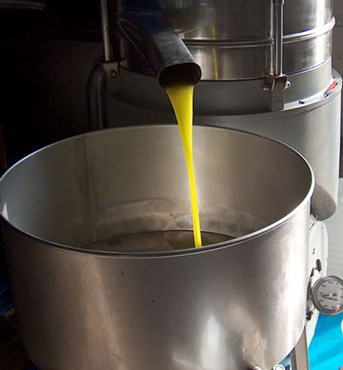
Domestic production is almost negligible compared to domestic consumption.
Data from International Olive Council
State of Olive Oil Today
Interest in olives and olive oil in the United States has surged. In the last twenty-five years, consumption of olive oil in the US has more than doubled. The US currently imports about 94% of that olive oil, and California farmers have been planting more olive orchards. If fact, the United States is the largest volume importer of olive oil globally, accounting for about 35 to 40% of world imports annually.
On an individual basis, Greeks are the biggest consumers of olive oil, using about 20 liters or 5.3 gallons per person annually” Other high-consuming populations include Spaniards with about 13 liters or 3.4 gallons per capita, and Italians with about 11 liters or 2.9 gallons per capita. By contrast, American per capita consumption is only about 1 liter/1 quart per person – meaning there is a lot of opportunity in the US to replace less-healthy options with olive oil!.
More on State of Olive Oil Today
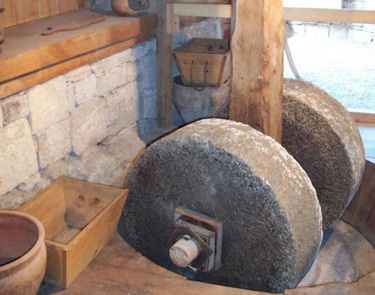
A Short History of Olive Oil
The olive tree is among the oldest known cultivated trees in the world. It originated on the eastern Mediterranean coast, and spread to the rest of the Mediterranean basin 6,000 years ago. The use of oil is now found in many religions and cultures, and there are thousands of varieties of olives. About 12 dozen olive varieties account for 85% of the world olive crop today.
There are many sources for further information about the history and production of olive oil.
Here are two. See the Olive Oil Source, and of course, Wikipedia.
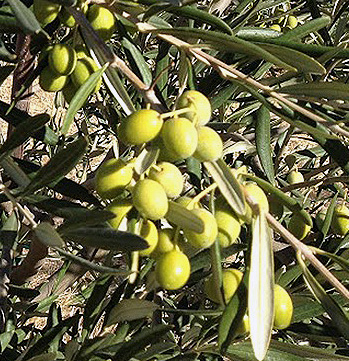
Health
Olive Oil is considered to be one of the most indispensable ingredients of a healthy diet. It has the highest percentage of heart-healthy monounsaturated fat of any oil. It’s also filled with polyphenols with antioxidant characteristics – natural substances shown to provide cardiovascular and anti-cancer benefits.
There is a growing body of scientific literature and reporting on the subject. See the Olive Oil Times and Olive Oil Source for wide-ranging and useful information on the healthy affects of extra virgin olive oil. The California Olive Oil Council (COOC) offers a clear and succinct summary of these health and nutrition benefits.
Compared to Vegetable Oils
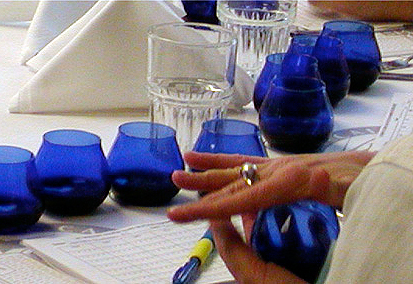
How to Taste Olive Oil
– Pour a little oil into a tasting cup
– Place cup in palm of hand and cover cup with other hand
– SWIRL oil to release aromas
– SNIFF oil to read the fruit intensity
– SIP oil to taste all flavors
– SWALLOW and observe pungency
– BREATHE in and taste the fruit, bitterness and pungency – indicators of quality and freshness
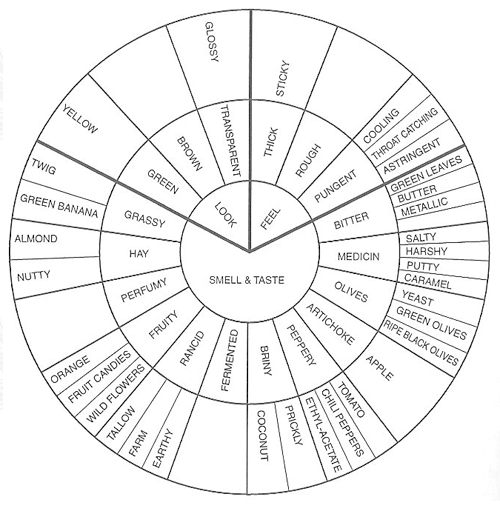
The Mojet Wheel was developed in 1993 as a proposal for a standard reference for virgin olive oil sensory evaluation.
Learn More
The California Olive Oil Council
Olive Oil Commission of California
The Olive Oil Commission of California is a government entity of the State of California. It was established and funded by California olive oil farmers, and supports them by:
- Developing and enforcing standards for the purity and quality of California olive oil.
- Verifying California olive oil quality through mandatory government sampling and third-party analysis.
- Promoting simple, clear accurate labels for California olive oil.
- Conducting research to assist farmers in successfully growing a healthy, sustainable crop.
The Olive Oil Times
The Olive Oil Times is a wonderful source of information and news about olive oil. They have an iPhone app, which is a comprehensive sourcebook about olive oils.
UC Davis Olive Center
The Olive Center has helped build a strong university/industry coalition aimed at meeting the research and education needs of olive growers and processors, driving toward the Center’s vision “to do for table olives and olive oil what UC Davis did for wine.”
Extra Virginity - Truth in Olive Oil
Follow Tom Mueller’s work ‘to build a community of people fascinated by great olive oil, and start a grassroots revolution in oil quality, one post, conversation and oil tasting at a time.” Here you will find good advice about buying oil and using oil, stories about oil-makers and an introduction to the fascinating and murky world of international oil production and trade.
